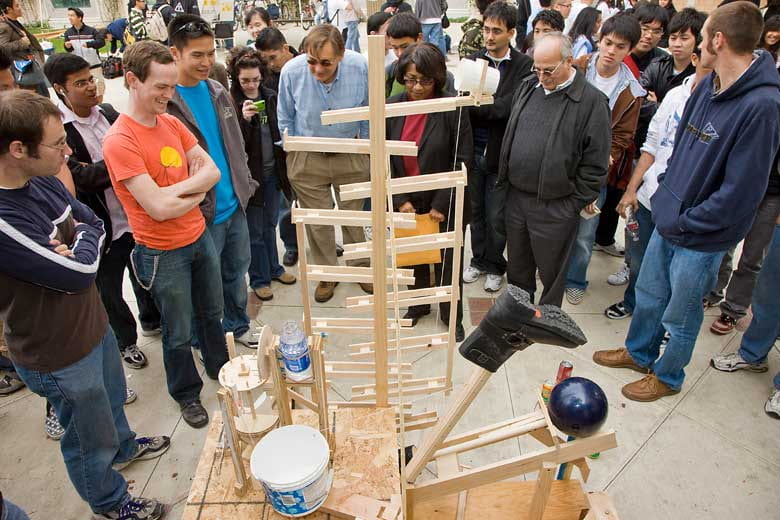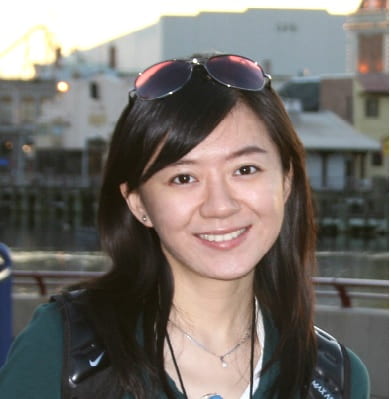Restoring math and science excellence
Summit aims to boost student interest, achievement in science, technology, engineering, math.

Excellence in science, technology, engineering and mathematics has fueled American innovation for more than 50 years. But serious questions are being raised about our future competitiveness in these “STEM” areas. U.S. grade-school students continue to underachieve in math and science, and a lower percentage of them go on to pursue undergraduate and graduate degrees in STEM disciplines than at any time over the last five decades.
The problem has deep economic significance. According to U.S. Bureau of Labor Statistics, more than half of the 30 fastest-growing occupations projected through 2018 will require significant math or science preparation. To help find solutions, the Samueli Foundation, the Children & Families Commission of Orange County, and UC Irvine’s Department of Education and Henry Samueli School of Engineering are teaming to present STEM Summit 2010: Early Childhood Through Higher Education.
The Feb. 18-19 conference at the Arnold & Mabel Beckman Center of the National Academies of Sciences & Engineering in Irvine will bring together national leaders in academia, business, policymaking and philanthropy to explore innovative ways of improving STEM education in America. Speakers will include UCI Chancellor Michael Drake; Deborah Lowe Vandell, professor and chair of education; J. Michael McCarthy, mechanical engineering professor; Greg Duncan, Distinguished Professor of education; and Rafael Bras, Distinguished Professor and dean of engineering.
Here, Bras, who helped organize the event, explains its importance.
Q: What critical issues will STEM Summit 2010 address?
A: The U.S. faces the challenge of maintaining and cultivating its human capital in science and engineering, which is the engine of growth and development. Many studies by the National Academies and others have indicated that we are failing this challenge.
According to the National Center for Education Statistics, U.S. high school seniors recently tested below the international average for 21 countries in mathematics and science. As a result of this deficiency, fewer American students are graduating from college with math or science degrees. In 1960, for example, 17 percent of all academic degrees were awarded in engineering, mathematics or the physical sciences. But by 2001, that figure had plummeted to 8 percent, with the U.S. producing only 148,000 graduates that year in these critical areas – the smallest number in two decades.
Q: What can be done to reverse this decline?
A: It’s clear that only a systematic approach that addresses issues from pre-K through higher education can succeed. Each link in that education chain has problems that are not independent of each other. The summit is intended to promote that broad view of STEM education, with speakers prominent in the associated fields.
Among them are Robert Siegler, an expert in the cognitive development of problem solving and reasoning in children; Walter Secada of the National Center for Improving Student Learning & Achievement in Mathematics & Science; Nancy Hopkins, molecular biology professor at MIT; author Paul Tough; and Michael Feuer, executive director of the National Research Council’s Division of Behavioral & Social Sciences & Education.
Q: What needs to happen at the collegiate level to attract and keep engineering students and, ultimately, steer them into graduate programs?
A: Higher education must enhance its offerings and help grade schools improve their delivery of STEM education. Universities have trouble not just attracting but retaining engineering students. Attrition is too high. We need to create more flexible, project-driven, hands-on and interesting curricula, as well as provide better guidance and services to students.
Q: What is the societal effect of having fewer students pursue STEM-related careers?
A: Most of the wealth and productivity of this nation over the last 30 to 50 years is directly attributable to advances in science and engineering. Failure to educate the best and foster creativity in these fields will mean losing our competitive advantage to other countries doing a better job of this.
Q: What do you want to accomplish with the summit?
A: The idea is that bringing together experts and academics from all levels of education will increase our understanding of the underlying systemic issues. Sharing success stories and models, providing data, and discussing policies and approaches will, we hope, energize a broad-based attack on the problem. Our plan is to establish a network and communication mechanisms that will allow continuing dialog.

